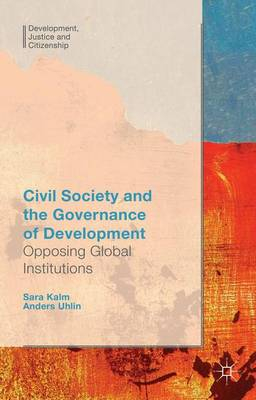

Civil Society and the Governance of Development
- Utgiven: 2015
- ISBN: 9781137461308
- Sidor: 199 st
- Förlag: Palgrave Macmillan
- Format: Inbunden
- Språk: Engelska
Om boken
Civil society organizations have become increasingly significant actors in global governance. Such actors are particularly active within the field of development where they engage with and try to influence global institutions in multiple ways. This book re-conceptualizes civil society engagement with global governance institutions in the field of development in terms of opposition. This innovative theoretical framework provides new insights and perspectives by combining theories from national opposition politics, international relations and social movement studies. The empirical analysis maps patterns of opposition and explains opposition strategies thorough detailed comparative case studies on civil society actors and, in particular, the European Union's policies and practices of development cooperation, as well as the Asian Development Bank and the Global Forum on Migration and Development. Unlike previous research in this field, which has tended to either focus on outside protest movements or inside lobbying advocacy, this study offers a more comprehensive approach and demonstrates how inside and outside strategies are frequently combined.
Åtkomstkoder och digitalt tilläggsmaterial garanteras inte med begagnade böcker
Mer om Civil Society and the Governance of Development (2015)
I februari 2015 släpptes boken Civil Society and the Governance of Development skriven av Anders Uhlin, S Kalm. Den är skriven på engelska och består av 199 sidor. Förlaget bakom boken är Palgrave Macmillan som har sitt säte i London.
Köp boken Civil Society and the Governance of Development på Studentapan och spara pengar.
Referera till Civil Society and the Governance of Development
Harvard
Uhlin, A. & Kalm, S. (2015). Civil Society and the Governance of Development. Palgrave Macmillan.
Oxford
Uhlin, Anders & Kalm, S, Civil Society and the Governance of Development (Palgrave Macmillan, 2015).
APA
Uhlin, A., & Kalm, S. (2015). Civil Society and the Governance of Development. Palgrave Macmillan.
Vancouver
Uhlin A, Kalm S. Civil Society and the Governance of Development. Palgrave Macmillan; 2015.



















